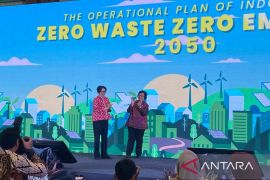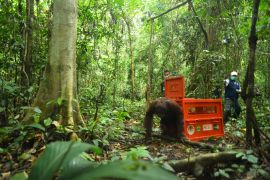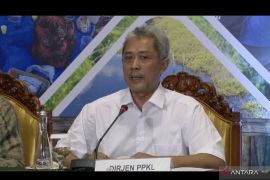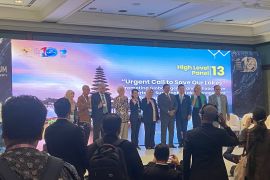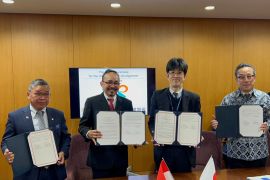We must not allow this crime, (since it makes a handful of) people benefit financially by sacrificing many others. Thus, firm action is needed.Jakarta (ANTARA) - The Environment and Forestry Ministry underscored that illegal dumping of hazardous and toxic waste originating from other countries into Indonesia's territory is a serious crime that should attract severe punishment.
"We must not allow this crime, (since it makes a handful of) people benefit financially by sacrificing many others. Thus, firm action is needed," Director General for Environmental and Forestry Law Enforcement at the ministry Rasio Ridho Sani stated here on Friday.
Sani remarked that the act violated Article 106 of Law Number 32 of 2009 on Protection and Management of the Environment as well as the Basel Convention ratified by 53 countries, including Indonesia.
Related news: Companies required to report non-B3 waste usage: ministry
The director general expects that heavy punishment can have a deterrent effect on perpetrators of the case of illegal dumping of imported hazardous and toxic waste.
"We will not stop taking action against such criminals," he remarked at a press conference on developments in the handling of the case at the ministry’s Journalist Center.
The Environment and Forestry Ministry has collaborated with several parties to eradicate illegal hazardous and toxic waste imports.
Some of the parties are the Port Authority and Harbormaster Office (KSOP), Customs Office, National Institute of Aeronautics and Space of Indonesia (Lapan), National Research and Innovation Agency (BRIN), Indonesian Maritime Security Agency (Bakamla), International Criminal Police Organization (Interpol), as well as the governments of other countries.
Related news: BPJAMSOSTEK provides food aid for workers handling hazardous waste
Sani said that the imported waste could, in fact, be processed further by waste management facilities in Indonesia, though much of the waste was disposed directly into the Indonesian waters.
The activity, especially the dumping of oil waste, can pollute waters, disturb marine biota, cause environmental damage, and ruin tourism destinations, such as beaches, so collaboration between international agencies and governments is deemed necessary to deal with the criminal case.
"We will continue to cooperate with various parties, who have authority (on surveillance and security) at sea," the director general stated.
Related news: PNJNT director named suspect in hazardous waste import case
Related news: Marine waste management crucial for realizing sustainable tourism: Uno
Translator: Sugiharto Purnama, Uyu Liman
Editor: Fardah Assegaf
Copyright © ANTARA 2022

